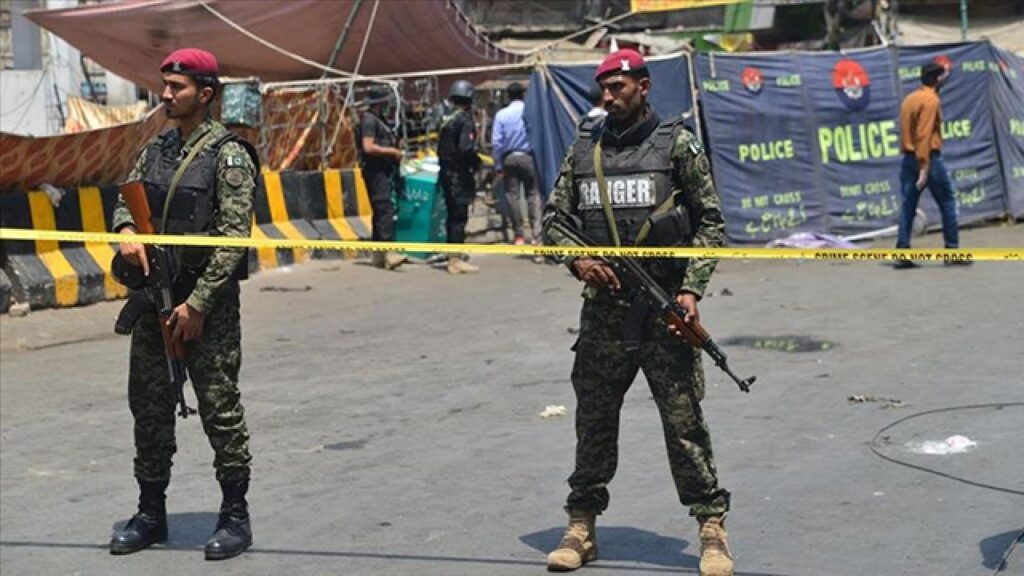Modi gives Armed Forces complete freedom on response to Pahalgam terror attack
Government sources said the Prime Minister affirmed that it is India’s national resolve to deal a crushing blow to terrorism.

New Delhi: Prime Minister Narendra Modi on Tuesday, 29 April, chaired a meeting which was attended by Defence Minister Rajnath Singh, Chief of Defence Staff Gen Anil Chauhan and three service chiefs.
National Security Advisor Ajit Doval was also present at the meeting.
The meeting took place days after a meeting of the Cabinet Committee on Security on April 23, following the terror attack on tourists in Pahalgam in which 26 people were killed.
Government sources said the Prime Minister affirmed that it is India’s national resolve to deal a crushing blow to terrorism.
The sources said PM Modi expressed complete faith and confidence in the professional abilities of the Indian Armed Forces.
They said that PM Modi stated that the Indian Armed Forces have complete operational freedom to decide on the mode, targets, and timing of India’s response.
The meeting, chaired by PM Modi on Tuesday, was attended by Army Chief Gen Upendra Dwivedi, Navy Chief Admiral Dinesh K Tripathi, and Air Chief Marshal Amar Preet Singh.
Defence Minister Rajnath Singh had met Prime Minister Narendra Modi at 7, Lok Kalyan Marg PM on Monday. The meeting came a day after Chief of Defence Staff Anil Chauhan briefed the Defence Minister on some decisions in the wake of the Pahalgam terror attack in Jammu and Kashmir.
The government has said that the terrorists responsible for the attack and the conspirators behind it will face severe punishment.
The government had convened an all-party meeting after the Pahalgam terror attack. Opposition parties have expressed their full support for any action taken by the government against the pepetrators of the terror attack.
In the briefing to the CCS, the cross-border linkages of the terrorist attack were brought out. It was noted that this attack came in the wake of the successful holding of elections in Jammu and Kashmir and its steady progress towards economic growth and development.
The government has announced a series of measures, including putting the Indus Water Treaty in abeyance, to send a strong message to Pakistan for its support to cross-border terrorism.
Kashmir’s 48 tourist places closed after security review
Meanwhile, in Srinagar the government of Jammu and Kashmir today closed more than half of the 87 tourist destinations in Kashmir as the number of arrivals at Srinagar airport witnessed a steep decline and raids on suspected houses continued for the second week.
The 48 tourist destinations that have been ordered closed are: Yousmarg, Tousimaidan, Doodpathri, Aharbal, Kousarnag, Bangus, Kariwan Diver Chandigam, Bangus Valley, Wular/Watlab, Rampora and Rajpora, Chearhar, Mundij-Hamam-Markoot Waterfall, Khampoo, Bosnia, Vijitop, Sun Temple, Verinag Garden, Sinthan Top, Margantop, Akad Park, Habba Khatoon Point, Babareshi, Ringawali, Gogaldara, Baderkote, Shrunz Waterfall, Kamanpost, Namblan Waterfall, Eco Park Khadniyar, Sangarwani, Jamia Masjid, Badamwari, Rajouri Kadal Hotel Kanaaz, Aali Kadal JJ Food Restaurant, IVORY Hotel, Padshapal resorts, and restaurant, Cherry tree resort (Faqir Gujri), North cliff cafe and retreat by Stay Pattern, Forest hill cottage, Eco village resort (Dara), Astanmarg View Point, Astanmarg Paragliding, Mamneth and Mahadev Hills, Buddhist Monastery, Dachigam – Beyond Trout Farm / Fisheries Farm, Astanpora(especially Qayam Gah resort, Lachpatri, Hung Park and Naranag.
The other destinations have been provided with proper security, and an official said that some of these destinations have been closed temporarily.
In the meantime, passenger traffic at Srinagar International Airport has witnessed a steep decline following the Pahalgam attack.
– Agencies